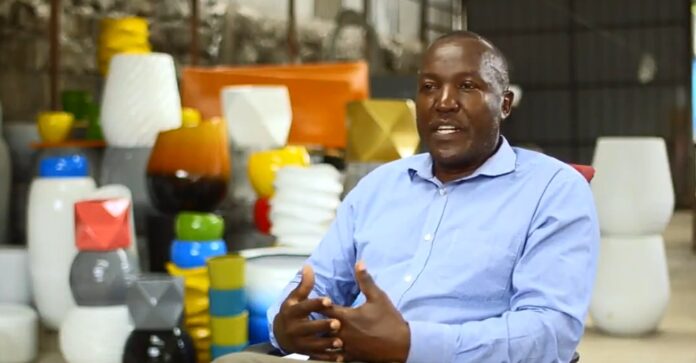Small and medium enterprises are the fulcrum of Kenya’s economy. They are responsible for the creation of millions of jobs and innovation, and contribute over 40 per cent of the GDP. Apart from driving economic growth and development, SMEs also underpin the social transformation of communities through livelihood opportunities and poverty reduction.
Small businesses, though, are often caught up in operational tornados. One of these is capital. According to Robert Maina, an Associate Director at Ernst & Young LLP, the ability of entrepreneurs to grow, expand and scale up their operations is to a large extent dependent on the availability of capital, including both financial and non-financial capital.
Access to capital becomes a huge barrier for the majority of small businesses that are already caught up in a struggle with liquidity, high input costs, and weakened consumer demand.
Nonetheless, the gap between SMEs and capital is getting narrower, thanks to financing support from Multilateral Development Banks such as the European Investment Bank (EIB), that is availing capital to small and medium businesses. Ronald Omwenga, the Founder and Managing Director of The Pot Shop, is one of the entrepreneurs who is growing his business through EIB’s timely support.
“We started this business in the year 2015. Five years later, in 2020, the pandemic struck and there was a positive ripple effect on demand for our products,” says Omwenga.
“With a near-nationwide lockdown, most people didn’t have much to do other than stay active at their homes. This sparked an opportunity for many people to start gardening and planting flowers. We quickly realized that there was a serious demand for flower pots.”
Although Omwenga had a small factory where he could manufacture his fiberglass flower pots, he did not have a reliable means of transport with which to supply his flower pots.
“I tried hiring trucks but this quickly proved to be unreliable and costly. Some customers complained about delays, and at times, pots would get damaged in transit. I needed a means of transport that was reliable for my business.”
Nancy Nyambura: How my animal feeds business broke even in Kayole, Nairobi
Omwenga started looking for a financial partner who could avail the capital and financing he needed to acquire a truck. His Co-operative Bank financial advisor informed him that the European Investment Bank was running a project where it was cushioning customers from the economic shocks that came about from the pandemic.
“We approached Co-operative Bank and got approval for financing. Out of the loan I got from Co-operative Bank, I bought my own truck, an Isuzu FRR. This is the truck that I have been using for my local deliveries and deliveries within the East African market,” he says.
“The financing we got from EIB through the Co-op Bank has been the backbone of our growth. The financing terms offered lower interest rates than was available in the market and a longer repayment period, which made instalments manageable. We have gotten enough capacity to meet the demand that is around, and we have been able to hire more staff,” he says.
Apart from the Co-operative Bank, the European Investment Bank has also partnered with Equity Bank to support small and medium enterprises to overcome economic shocks since 2020. Take William Kinuthia, the Managing Director of adventures‘ firm Rapids Camp. He says that the period after the 2020 pandemic was particularly hard for his business.
“We had the huge challenge of raising enough capital to inject into our business. We were having a big challenge with customers accessing our business,” he says.
Kinuthia explains that his business setup is mainly found between two counties, Kirinyaga County and Murang’a County. The two counties are separated by the River Tana.
“Tana is the largest river in the country; it’s very wide. We previously used boats to cross and this curtailed the number of customers. Many potential customers were not able to cross because of water phobia,” he says.
Fortunately, the European Investment Bank came in through for his business with financing for the construction of a bridge that was advanced through the Equity Bank. “We constructed the bridge and this opened a lot of business for us. Many people were able to come, which was a boon for our business growth. Within just one year, we hosted about 120 different nationalities,” says Kinuthia.
Since then, he has been able to double his staff. “We are now in a good place where we not only make adequate revenue for ourselves but are also able to sufficiently honour our
Omwenga and Kinuthia’s are two of many businesses that received a fresh lifeline with funding programs from the European Investment Bank in the recent few years. But this is not the first time that the EIB is lending a helping hand to small and medium enterprises in Kenya.
The EIB has so far invested over EUR 1.6 billion (Sh. 230.4 billion) in different projects over the years since its first project in Kenya in 1976. Out of this amount, close to EUR 700 million (Sh. 100.8 billion) has been used to support small and medium enterprises in the private sector such as The Pot Shop and Rapids Camp through inte
The EIB has worked with lenders including Equity Bank, the Co-operative Bank, the African Export-Import Bank, TDB – Eastern and Southern Africa Trade and Development Bank, and Kenya Commercial Bank, among many others, as the main financial intermediaries.
Over the last five years, the EIB has provided more than €534 million (Sh. 76.89 billion) for private sector investment across Kenya in partnership with Kenyan businesses, banks, financial partners and microfinance institutions.
“Beyond the upgrade of key infrastructure, our work has helped to reinforce Kenya’s attractiveness as an investment destination,” the EIB said in a statement to Bizna Kenya. “By financing local banks and private equity funds, we have supported thousands of micro, small and medium businesses, the backbone of the economy, in all sectors.”








